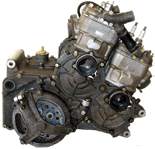

The view from those who expect AI and robotics to have a positive or neutral impact on jobs by 2025 Conversely, others have hope that the coming changes will be an opportunity to reassess our society’s relationship to employment itself-by returning to a focus on small-scale or artisanal modes of production, or by giving people more time to spend on leisure, self-improvement, or time with loved ones.Ī number of themes ran through the responses to this question: those that are unique to either group, and those that were mentioned by members of both groups. For instance, many are concerned that our existing social structures-and especially our educational institutions-are not adequately preparing people for the skills that will be needed in the job market of the future. These two groups also share certain hopes and concerns about the impact of technology on employment. But they have faith that human ingenuity will create new jobs, industries, and ways to make a living, just as it has been doing since the dawn of the Industrial Revolution. To be sure, this group anticipates that many jobs currently performed by humans will be substantially taken over by robots or digital agents by 2025. The other half of the experts who responded to this survey (52%) expect that technology will not displace more jobs than it creates by 2025. Half of these experts (48%) envision a future in which robots and digital agents have displaced significant numbers of both blue- and white-collar workers-with many expressing concern that this will lead to vast increases in income inequality, masses of people who are effectively unemployable, and breakdowns in the social order. Will networked, automated, artificial intelligence (AI) applications and robotic devices have displaced more jobs than they have created by 2025?

The economic impact of robotic advances and AI -Self-driving cars, intelligent digital agents that can act for you, and robots are advancing rapidly. Some 1,896 experts responded to the following question: Our educational system is not adequately preparing us for work of the future, and our political and economic institutions are poorly equipped to handle these hard choices.

Certain highly-skilled workers will succeed wildly in this new environment-but far more may be displaced into lower paying service industry jobs at best, or permanent unemployment at worst.Impacts from automation have thus far impacted mostly blue-collar employment the coming wave of innovation threatens to upend white-collar work as well.Ultimately, we as a society control our own destiny through the choices we make.
MINI MOTOR RACING NOT TRANSFERRING PROGRES FREE



 0 kommentar(er)
0 kommentar(er)
